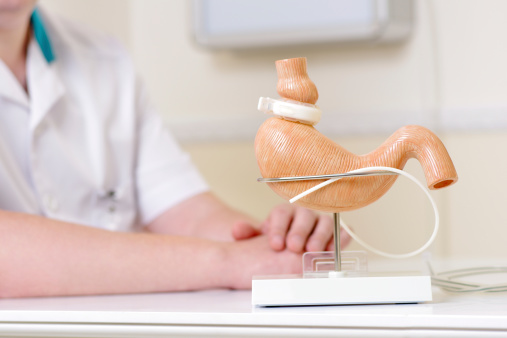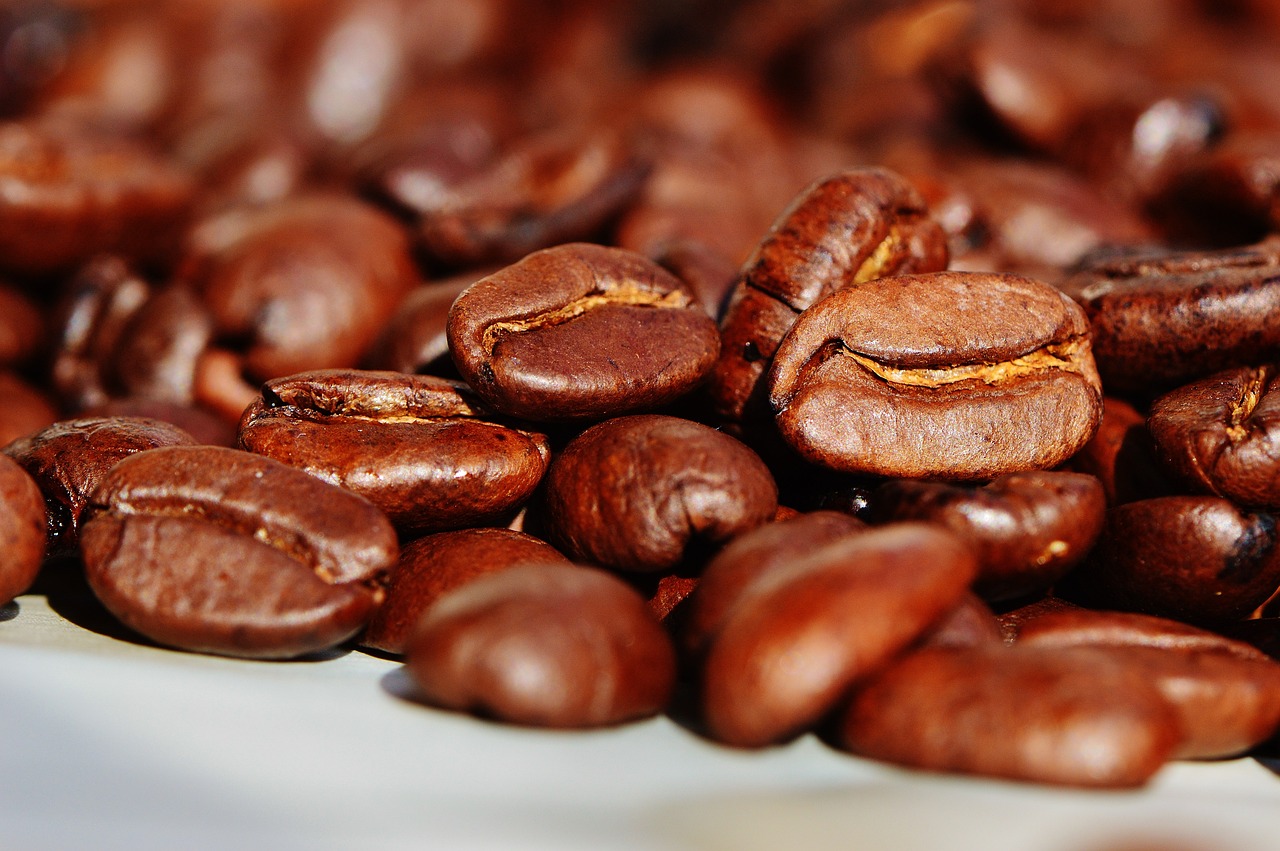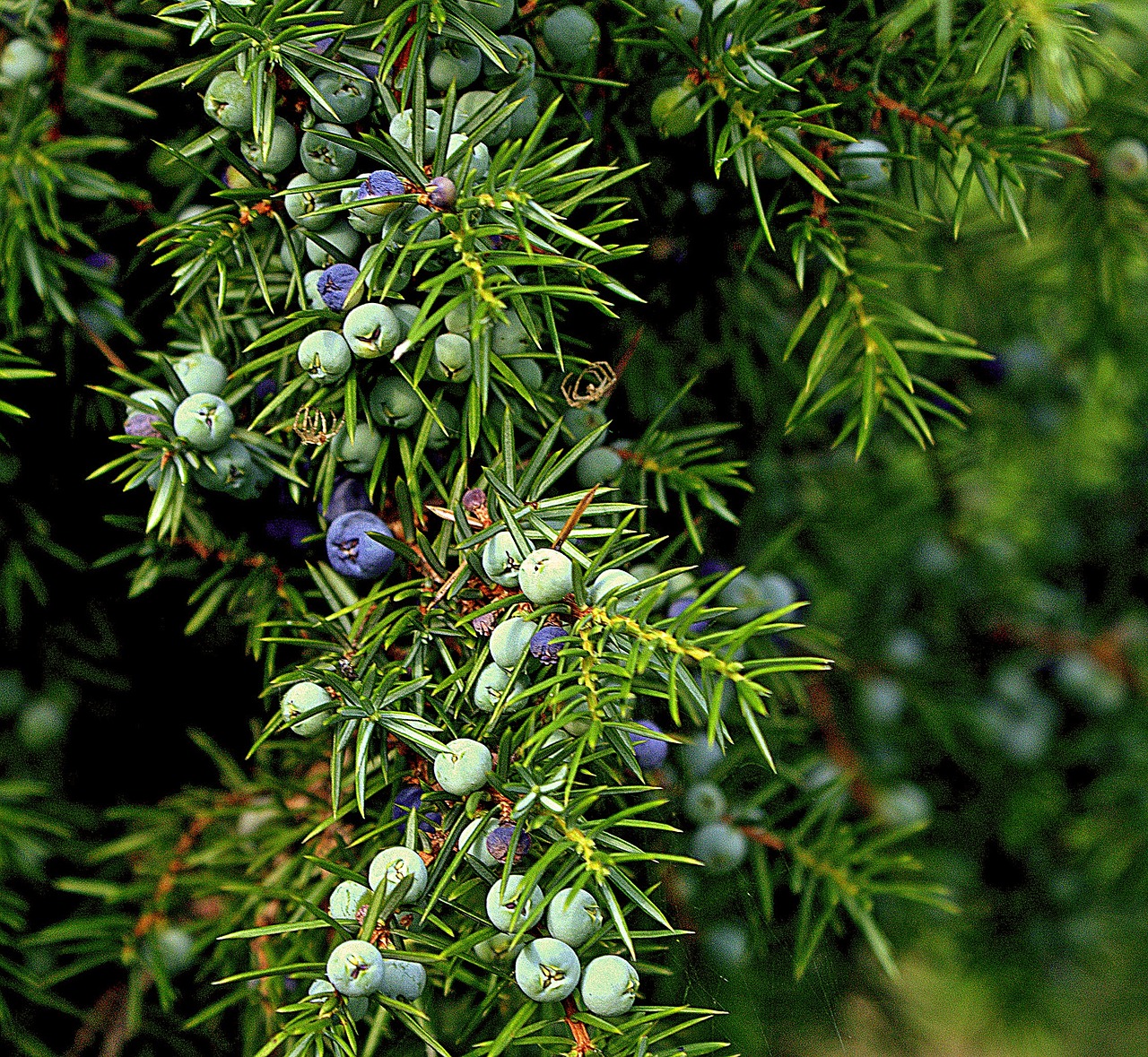Beauty
Bariatric Surgery in USA

The gastric band in ten questions
The gastric band, what is it?
How it works ?
How does it arise?
What are the benefits of gastric banding?
What are the risks after the installation of a ring?
When should I be worried?
What course before the ring?
How do I live with my ring?
Will my ring be taken away from me one day?
Ethics and regulations in France?
The gastric band, what is it?
It is a silicone ring, whose diameter is changeable, which is surgically placed around the upper part of the stomach, creating a small pocket (gastric pouch) above it.
It is connected by tubing (a flexible tube) to a housing placed under the skin. Water can thus be injected into the housing, by a simple puncture through the skin, to tighten or loosen the ring if necessary. This adjustment can be made under radiological control for optimal inflation.

How it works ?
This is a so-called restrictive technique, which reduces the useful volume of the stomach. The ring acts like an hourglass, slowing down the passage of food, causing it to stagnate in the gastric pouch.
During a meal, the feeling of hunger decreases quickly because little food is needed to fill the gastric pouch (about 15 to 20 cl, the equivalent of a briquette of fruit juice).
With the installation of the gastric band, neither the digestion nor the absorption of food is disturbed. The risk of vitamin and micronutrient deficiency is therefore very low and does not require replacement tablets to be taken for life, which is different from other types of bariatric surgery.
However, the ring is only one element within an overall care. It does not dispense with following the proposed dietary rules or setting up regular adapted physical activity.
It is not a “miracle” product and it justifies a long multidisciplinary follow-up, total involvement and adherence of the teenager and his family to the course offered to him.
How does it arise?
Placing the gastric band requires an operation. This takes about an hour and is performed under general anesthesia. It is done laparoscopically, that is to say that the surgeon operates using a camera and instruments that he introduces into the abdominal cavity (the belly) through small incisions (5 mm). Then, he operates by following his gestures on a screen.
If the surgeon encounters difficulties – for example a too large liver -, he will then operate in the traditional way and make a classic incision (laparotomy).
To allow good tissue healing, the band is always placed deflated. The first inflation will take place in consultation approximately 6 weeks after the intervention, after application of an anesthetic cream on the skin next to the box.
What are the benefits of gastric banding?
On weight loss:
Weight loss is expressed in different ways:
Weight loss in kilograms
Loss of excess weight
Loss of excess weight percentage
Lower BMI
The average loss that can be expected is 40-60% of excess weight.
Excess weight is the difference between the actual weight and the ideal weight (weight corresponding to a BMI of 24.9 Kg/m2).
“Let’s take the example of a person of average height (1.76m), weighing 119 Kg (BMI of 40kg/m²). His ideal weight (for a BMI of 24.9 Kg/m2) is 73 Kg. His excess weight is therefore 44 kg. She can therefore hope to lose between 20 and 25 kg approximately thanks to the ring, i.e. a final weight of around 96 kg.
ATTENTION: The weight loss begins in the first days after the intervention, but it is very gradual, and reaches its maximum peak in approximately 18 to 24 months.
It will be optimal if we respect the advice of food hygiene as well as possible and that we practice regular daily physical activity.
On associated disorders (comorbidities)?
The gastric band is very quickly effective on all the complications associated with obesity: high blood pressure, menstrual disorders, sleep apnea, type 2 diabetes, hypercholesterolemia,… It can improve them or even make them disappear completely as soon as the first six months after installation.
What are the risks after the installation of a ring?
Like any other surgical procedure, the placement of a gastric band exposes you to a certain number of risks (or complications). But, of all bariatric surgery procedures, it is the technique with the least risk of serious complications. Is bariatric surgery for me?
Sometimes surgery can lead to:
A perforation of the stomach. It’s rare (less than 1% of cases) and it fixes itself.
Pulmonary embolism or venous thrombosis after the operation. It is a clot that forms in a blood vessel, and can travel up into the vessels of the lungs. This is possible after any surgery and is often linked to prolonged bed rest. It is avoided by getting up early, wearing compression stockings and taking medication.
Bleeding around the stomach or at the scars.
An infection in the scars.
There are complications that can occur after the operation, sometimes very long after:
The “slippage”: it is the slippage of the stomach through the band, which causes the impossibility of eating and drinking. It justifies a new intervention quickly.
Motricity disorders of the esophagus above the ring which constitutes an obstacle, with the possibility of dilation of the esophagus or the gastric pouch. The ring must then be loosened.
Stomach damage caused by the ring. The risk is then a displacement of the ring inside the stomach. The ring must be removed.
“Malfunctions” in the tubing and housing: leaks in the tubing, mismatching of the tubing from the housing, infection of the housing, reversal of the housing. They require readjustment of the device.
When should I be worried?
If I am unable to absorb food or drink, if I vomit at every meal, if I feel significant pain in the upper part of my stomach…
I must then contact my surgeon immediately.
During the week, I can reach the pediatric surgery secretariat of the CHU d’Angers directly at 02.41.35.42.90
At night and on weekends, I can reach the on-call surgeon via the hospital switchboard 02.41.35.36.37
He will do a clinical assessment and a radiological examination to look for a mechanical obstacle to the passage of food. These are often dietary errors (I eat too quickly or too much), but they can reveal band complications such as dilated esophagus or gastric slippage. Depending on the case, this may require temporary deflation or reoperation to reposition or remove the ring.
What course before the ring?
The course of bariatric surgery for adolescents offered at the CHU d’Angers is based on the national recommendations of the High Authority for Health and international. Its goal is to modify your lifestyle habits (food, but also physical activity and socialization), in order to give the maximum chance of success for the surgery. For more information, download the booklets opposite.
The duration of the course is a minimum of 12 months, and the final decision of surgery will only be taken at the end of this period, during a summary meeting of the various stakeholders who will have followed you throughout along this route.
The dietary preparation will aim to correct your bad eating habits, such as snacking or a diet that is insufficiently varied and too high in calories. It will also prepare you for the more split feeding rhythm that is necessary to tolerate gastric banding well. It will be recommended that you start splitting your diet at least 1 month before surgery.
Starting a sports activity now allows you to get a taste for it long before the surgery, and is essential to maintain weight loss over the long term, and also to build muscle mass! Different activities adapted to overweight are offered in the region, so… it’s up to you to play according to your tastes and your desires!
The sports activities
Gateway workshops in Angers
Find a structure on Sport Health in Pays de la Loire
Ideas for sports activities on Attitude Prévention – Sport and physical activity and the French Federation Sport for all
Different meeting times with pediatricians are also offered: the nutritionist endocrinologist will provide regular updates on the progress made, and day hospitalization will be planned to carry out examinations in search of complications of obesity, but also to prepare for surgery. At the end of the course, a one-week multidisciplinary evaluation hospitalization will be organized in the unit of the Adolescent Clinic at the CHU d’Angers before any intervention decision. You will take part in many activities (talk groups), which will allow the entire medical and paramedical team to evaluate and assess your motivations, the psychological impact of your overweight…
You will also meet the surgeon several times, at the beginning of the course so that he explains to you everything you need to know about the gastric band before you decide for this intervention, then before the surgery to explain you a little more. in detail how the operation and hospitalization will take place, and to answer any questions you may have.
Child psychiatry follow-up is essential throughout this course and must continue after the intervention. You will meet a referral child psychiatrist in Angers, but more regular follow-up near your home is entirely possible and even recommended!
Finally, during this year, you may be offered a stay of one or three months at the Capucins center, in a group of about ten young people motivated by comprehensive management of your obesity. In this case, the surgery will take place soon after the end of the stay to help you continue to lose weight!
How do I live with my ring?
For the intervention, you will be hospitalized the morning of the intervention at the adolescent clinic of the CHU d’Angers. You will start to eat again the day after the operation, after having done an x-ray of the stomach, so that we can make sure that there is no problem with the band, in particular a leak , and that it is in a good position. The dietitian will be there to help you. You can go home 2 to 3 days after the operation, when you have fully understood the new way in which you should eat (fractionation). You will find many tips in the Information Booklet after gastric banding before your discharge.
You will not need a “lifetime” vitamin supplement, but if deficiencies are detected during regular blood tests, they will then be corrected on time.
You can start practicing sports again one month after the surgery, until your stomach muscles are well healed. No sport is formally contraindicated, but it is recommended to avoid violent sports, because knocks on the case could cause pain, or damage the ring.
Likewise, travel abroad is allowed, but you will need to ensure that you can always be within 2-3 days of a hospital capable of taking care of you in the event of a gastric band-related problem, and this as long as your ring is in place.
Young women who have had bariatric surgery can have completely normal pregnancies. On the other hand, it is recommended to wait at least two years after the surgery to start a planned pregnancy, in order to avoid nutritional deficiencies in the future baby, and to ensure optimal follow-up from the desire for pregnancy by an obstetrician and a nutritionist specializing in the care of overweight women. Complications related to surgery can occur during pregnancy, but not more frequently than in normal times, that is to say, in the absence of pregnancy.
You’re going to have a lifetime following, at least as long as you have a ring. This lifelong follow-up is mandatory because it is necessary for your health, and you and your parents will agree to it by signing a consent form before the intervention
consent form about you
consent form for your parents
This follow-up will be ensured by the pediatric team, until the legal majority acquired or a little more. You will then be taken care of by the adult team, after a gradual and accompanied transition.
The post-operative follow-up is made of:
a post-operative consultation at 15 days and one month with the dietician and at 6 weeks with the pediatric surgeon who will inflate your ring for the first time.
follow-up with the dietitian every six weeks
regular follow-up with the child psychiatrist and the psychologist
day hospitalization at 3.6 and 12 months where you meet all the practitioners
follow-up every year after
Will my ring be taken away from me one day?
It’s possible :
Because it may be necessary:
Due to a complication related to the band (migration for example): it will then have to be removed and then put back on
Because some people do not tolerate the presence of the ring, which bothers them too much on a daily basis
Because you want to, if the ring hasn’t helped you lose weight after at least two years…
What will be done in case of “ring failure”?
The first thing is to appreciate and define what is called failure:
insufficiency of excess weight loss expected or rather hoped for? Be careful not to confuse…
The evaluation of the Quality of Life* questionnaires, completed throughout the course, seems to us to be the essential element in being able to speak of success or failure.
An assessment will then be made, to check that the ring is in place and correctly inflated (x-rays). If there is a mechanical problem, it will be corrected. Otherwise, the lack of weight loss is generally due to non-compliance with dietary guidelines and the lack of sufficient practice of physical activity. We will therefore encourage you to resume good habits!
We do not yet know if it will be possible to withdraw it “in principle” after a few years, considering that the habits of life and food hygiene are definitively acquired.
Ethics and regulations in France
Gastric banding, like all bariatric surgery in children, without being prohibited, is currently not expressly recommended in France, and never as first-line treatment. Therefore, you should think carefully before embarking on this process. You and your parents should take the time to get advice from your doctor. You must inform yourself about the techniques used and the recognized surgical teams.
In Angers, we made the choice of the gastric band, in adolescents, because its effectiveness on weight loss and the improvement of comorbidities have been proven in adults as well as in children. Above all, the installation of the ring is reversible and requires a great investment on your part: it is therefore included in an educational process.
Other surgical techniques, sleeve gastrectomy and gastric bypass, are also very effective. However, they are irreversible, technically more complex and can lead to more serious postoperative complications. In the long term, they can lead to deficiencies in vitamins and micronutrients
Our course of bariatric surgery for adolescents is based on international pediatric recommendations, – mainly American -, and on the French recommendations of the Haute Autorité de Santé. Our team has thus defined precise criteria to determine which adolescents can benefit from the surgery. It is with just as much rigor that it has defined the means necessary for the care of these children.
This treatment is part of the Specialized Adolescent Obesity Center of Maine et Loire, and has been validated by national experts in adult bariatric surgery, the Ethics Committee and members of the Management of the CHU d’Angers, the regional health authorities (ARS – Regional Health Agency) and the medical advisors of the Caisse Primaire d’Assurance Maladie (CPAM). Bariatric surgery is indeed subject to prior agreement, ie for the reimbursement of the intervention, the authorization to operate must be requested before the intervention from the CPAM. In addition, during the pre-surgery course, a request for 100% care coverage will also be made for ALD (long-term illnesses), in conjunction with the attending physician. It will allow the reimbursement by the CPAM of all the analyzes and all the care related to the management of the ob
Beauty
Benefits of coffee for hair and ways to use it

Benefits of coffee for hair
Coffee has gained popularity not only as a beverage but also as a potential ingredient for hair care. Here are some potential benefits of coffee for hair and different ways to use it:
- Stimulates hair growth: The caffeine present in coffee is known to stimulate hair follicles and promote hair growth. It may help increase blood circulation to the scalp, providing essential nutrients to the hair roots.
- Reduces hair loss: Coffee may help inhibit the effects of DHT (dihydrotestosterone), a hormone associated with hair loss. Applying coffee topically may block DHT and reduce hair fall.
- Adds shine and luster: Coffee can add shine and luster to dull hair. It may enhance the natural color and make the hair appear more vibrant.
- Strengthens hair strands: The antioxidants present in coffee, such as polyphenols, can help strengthen the hair shaft, reducing breakage and split ends.
- Acts as a natural hair dye: Coffee can act as a natural dye, particularly for dark hair. It may provide subtle brown tones or enhance existing brown color.

Here are a few ways to use coffee for hair:
- Coffee rinse: Brew a strong cup of coffee and let it cool. After shampooing your hair, pour the coffee over your hair and massage it into the scalp. Leave it on for a few minutes before rinsing thoroughly.
- Coffee hair mask: Mix brewed coffee with a natural hair mask ingredient, such as plain yogurt or coconut oil. Apply the mixture to damp hair and leave it on for 20-30 minutes before rinsing.
- Coffee oil treatment: Infuse coffee grounds in warm coconut or olive oil for a few days. Strain the oil and apply it to the scalp and hair, massaging gently. Leave it overnight and wash it off the next morning.
- Coffee spray: Brew a strong cup of coffee and allow it to cool. Transfer it to a spray bottle and spritz it onto your hair as a leave-in conditioner. Avoid using too much to prevent staining.
Remember to perform a patch test before applying coffee or any new ingredient to your hair or skin to check for potential allergic reactions. Additionally, individual results may vary, so it’s important to experiment and find the method that works best for your hair type and needs.
Beauty
Skin Pigmentation Natural Remedies

Natural recipes for the treatment of skin pigmentation
Skin pigmentation refers to the darkening or discoloration of the skin, often caused by various factors such as sun exposure, hormonal changes, aging, or certain medical conditions. While natural remedies can help improve the appearance of pigmentation, it’s important to note that they may not eliminate the issue. It’s always a good idea to consult with a dermatologist for an accurate diagnosis and appropriate treatment options. Here are a few natural recipes that you can try:
Lemon Juice and Honey Mask:
- Mix equal parts lemon juice and honey.
- Apply the mixture to the affected areas.
- Leave it on for 20 minutes before rinsing with lukewarm water.
- Repeat this remedy a few times a week.
Note: Lemon juice may cause skin sensitivity, so it’s essential to perform a patch test before applying it to larger areas. Additionally, avoid sun exposure after using lemon juice on the skin as it can cause photosensitivity.
Aloe Vera Gel:
- Extract fresh gel from an aloe vera leaf.
- Apply the gel directly to the pigmented areas.
- Leave it on for 30 minutes before rinsing with water.
- Repeat this process daily for several weeks.
Turmeric and Milk Paste:
- Mix 1 teaspoon of turmeric powder with enough milk to form a paste.
- Apply the paste to the affected areas.
- Leave it on for 20-30 minutes before rinsing with water.
- Repeat this remedy a few times a week.

Potato Juice:
- Grate a potato and squeeze out the juice.
- Apply the juice to the pigmented areas using a cotton ball.
- Leave it on for 20 minutes before rinsing with water.
- Repeat this process daily for a few weeks.
Apple Cider Vinegar Toner:
- Dilute apple cider vinegar with an equal amount of water.
- Apply the mixture to the affected areas using a cotton ball.
- Leave it on for 5-10 minutes before rinsing with water.
- Repeat this process once daily, gradually increasing the exposure time.
Remember, it’s important to be consistent and patient when using natural remedies. If you don’t see significant improvement or experience any adverse reactions, discontinue use and consult a dermatologist for further guidance.
Beauty
Juniper Berries: Benefits & Uses

6 BENEFITS & USES OF JUNIPER BERRIES
Juniper berries, the fruit of the juniper tree (Juniperus communis), have been used for various purposes for centuries. Here are six benefits and uses of juniper berries:
- Culinary Uses: Juniper berries are commonly used as a spice in cooking, particularly in European cuisines. They have a unique flavor profile that is often described as piney, citrusy, and slightly peppery. Juniper berries are a key ingredient in dishes like sauerkraut, pickles, game meats, and certain spirits like gin.
- Digestive Aid: Juniper berries have been traditionally used as a digestive aid due to their carminative properties. They can help relieve symptoms such as bloating, gas, and indigestion. Juniper berries are sometimes used to make herbal teas or tinctures that can support digestive health.
- Antioxidant Properties: Juniper berries are rich in antioxidants, including flavonoids and polyphenols, which help protect the body against oxidative stress and free radicals. Antioxidants are beneficial for overall health and may help reduce the risk of chronic diseases.
- Diuretic Effects: Juniper berries are known for their diuretic properties, meaning they can increase urine production and promote detoxification. This effect can help reduce water retention, support kidney function, and flush out toxins from the body.
- Respiratory Support: Juniper berries have been used in traditional medicine to support respiratory health. They may help alleviate symptoms of respiratory conditions like coughs, bronchitis, and congestion. Juniper berry essential oil is sometimes used in aromatherapy or as an ingredient in chest rubs.
- Skin Care: The antimicrobial and anti-inflammatory properties of juniper berries make them beneficial for skin health. Juniper berry extract or oil is often used in natural skincare products to help soothe and cleanse the skin, treat acne, and reduce inflammation. However, it’s important to note that juniper berry oil can be irritating to some individuals, so it should be used with caution and in diluted form.
While juniper berries offer potential benefits, it’s important to consult with a healthcare professional before using them for therapeutic purposes, especially if you have any underlying health conditions or are taking medications.

WAYS TO USE JUNIPER BERRIES
There are several ways to use juniper berries in various forms. Here are some common methods:
- Culinary Use: Crush juniper berries using a mortar and pestle or a spice grinder and use them as a spice in cooking. They are often used in marinades for game meats, stews, sauerkraut, and pickles. Juniper berries can also be added to spice blends or used to flavor sauces and soups.
- Herbal Tea: Juniper berries can be used to make herbal tea. Crush a few berries and steep them in hot water for about 10 minutes. The resulting tea has a distinct flavor and can be consumed on its own or blended with other herbs for added benefits.
- Infused Spirits: Juniper berries are a primary ingredient in gin, contributing to its characteristic flavor. You can infuse spirits like vodka or gin with juniper berries to create your own flavored alcoholic beverages. Simply add crushed berries to the spirit and let it steep for a few days or weeks before straining.
- Tincture: Juniper berry tincture is made by soaking crushed berries in alcohol, such as vodka or brandy, for several weeks. This creates a concentrated liquid extract that can be used in small doses for digestive support or other medicinal purposes. Consult an herbalist or follow a trusted recipe for proper tincture preparation.
- Aromatherapy: Juniper berry essential oil is used in aromatherapy for its therapeutic properties. It can be diffused in a room to promote relaxation, added to bathwater for a soothing experience, or used in massage oils for its rejuvenating effects. Ensure to follow proper dilution guidelines and consult a qualified aromatherapist for guidance.
- Skincare Products: Juniper berry extract or oil is used in natural skincare products such as soaps, lotions, and creams. These products may help cleanse the skin, reduce inflammation, and promote overall skin health. Ensure to follow the instructions provided by the product manufacturer.
Remember to use juniper berries in moderation and consult a healthcare professional or herbalist for personalized advice, especially if you have any specific health concerns or are taking medications.
DISCOVER THE MANY USES OF JUNIPER BERRIES
Juniper berries have a wide range of uses across various domains. Here are some additional uses of juniper berries:
- Natural Cleaning: Juniper berries can be used as a natural cleaning agent. Create a homemade cleaning solution by simmering crushed juniper berries in water, then strain and use the liquid to clean surfaces. The antimicrobial properties of juniper berries can help disinfect and freshen your living space.
- Herbal Medicine: Juniper berries have been used in traditional herbal medicine for their medicinal properties. They are believed to have diuretic, antiseptic, anti-inflammatory, and antifungal effects. Juniper berry extracts or tinctures can be used to support urinary health, alleviate digestive issues, and assist with joint pain.
- Craft and Decor: Dried juniper berries can be used in craft projects and as decorative elements. They add a natural touch to wreaths, potpourri, and floral arrangements. Juniper berries can also be used to create unique and fragrant homemade sachets or scented candles.
- Culinary Preservatives: Juniper berries contain natural preservatives that help inhibit the growth of certain bacteria and fungi. They are commonly used in preserving and curing meats, particularly in traditional dishes like sausages and salami. The aromatic and tangy flavor of juniper berries adds depth to preserved foods.
- Outdoor Cooking: Juniper berries can be used for outdoor cooking. They can be added to smoking chips or placed directly on charcoal to impart a distinct flavor to grilled or barbecued meats. The smoky, resinous aroma of juniper berries enhances the taste of grilled dishes.
- Potpourri and Aromatics: Dried juniper berries can be added to potpourri blends to release a pleasant and refreshing scent. Crushed juniper berries can also be used in homemade scented sachets or drawer fresheners to impart a natural aroma and help repel pests.
It’s important to note that while juniper berries have various uses, they should be used in moderation and with caution. Pregnant women, individuals with kidney disorders, or those on certain medications should consult with a healthcare professional before using juniper berries for medicinal purposes.
-

 Beauty4 years ago
Beauty4 years agoAll you need to know about the problem of excessive hair in women
-

 Nutrition4 years ago
Nutrition4 years agoBenefits of eating fruits daily
-

 Beauty3 years ago
Beauty3 years agoRecipes for hair lengthening – the fastest 8 recipes for hair lengthening and intensification
-

 Fitness4 years ago
Fitness4 years agoBack exercises and ways to apply them to get rid of problems
-

 Lifestyle4 years ago
Lifestyle4 years agoPromote a healthy lifestyle
-

 Beauty4 years ago
Beauty4 years agoBenefits of lavender – Here are more than 10 benefits of lavender for the body
-

 Beauty4 years ago
Beauty4 years agoBenefits of drinking olive oil for the skin and the immune system of the body
-

 Business Services2 years ago
Business Services2 years agoOnline aeronautical engineering degree






